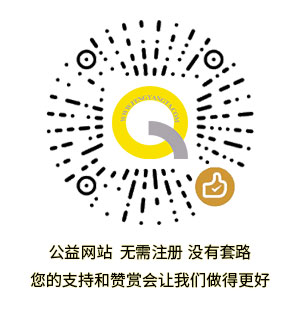【问题】 We'veknownforyearsthatplantscansee,hear,smellandcommunicatewithchemicals.Now,reportedNewScientist,theyhavebeenrecordedmakingsoundswhenstressed. Inayet-to-be-publishedstudy,ItzhakKhaitandhisteamatTelAvivUniversity,inIsrael,foundthattomatoandtobaccoplantsca
We'veknownforyearsthatplantscansee,hear,smellandcommunicatewithchemicals.Now,reportedNewScientist,theyhavebeenrecordedmakingsoundswhenstressed. Inayet-to-be-publishedstudy,ItzhakKhaitandhisteamatTelAvivUniversity,inIsrael,foundthattomatoandtobaccoplantscanmakeultrasonic(超声的)noises.Theplants"cryout"duetolackofwater,orwhentheirstems(茎)arecut.It'sjusttoohigh-pitchedforhumanstohear. Microphonesplaced10centimetersawayfromtheplantspickedupsoundsintheultrasonicrangeof20to100kilohertz.Humanhearingusuallyrangesfrom20hertzto20kilohertz."Thesefindingscanchangethewaywethinkabouttheplantkingdom,"theywrote. Onaverage,"thirsty"tomatoplantsmade35soundsanhour,whiletobaccoplantsmade11.Whenplantstemswerecut,tomatoplantsmadeanaverageof25soundsinthefollowinghour,andtobaccoplants15.Unstressedplantsproducedfewerthanonesoundperhour,onaverage. Perhapsmostinterestingly,differenttypesofstressledtodifferentsounds.Theresearcherstrainedamachine-learningmodeltoseparatetheplants'soundsfromthoseofthewind,rainandothernoisesofthegreenhouse.Inmostcases,itcorrectlyidentifiedwhetherthestresswascausedbydrynessoracut,basedonasound'sintensityandfrequency.Water-hungrytobaccoappearstomakeloudersoundsthancuttobacco,forexample.AlthoughKhaitandhiscolleaguesonlylookedattomatoandtobaccoplants,theythinkotherplantsalsomakesoundswhenstressed. Iffarmerscouldhearthesesounds,saidtheteam,theycouldgivewatertotheplantsthatneeditmost.Asclimatechangecausesmoredroughts,theysaidthiswouldbeimportantinformationforfarmers."Thesoundsthatdrought-stressedplantsmakecouldbeusedinprecisionagriculture,"saidAnneVisscherattheRoyalBotanicGardens,Kew,intheUK. Khait'sreportalsosuggeststhatinsectsandmammalscanhearthesoundsupto5metersawayandrespond.Forexample,amoth(蛾子)maydecidenottolayeggsonawater-stressedplant.EdwardFarmer,attheUniversityofLausanne,Switzerland,isdoubtful.Hesaidthattheideaofmothslisteningtoplantsis"alittletoospeculative". Ifplantsarescreamingforfearoftheirsurvival,maybeweshouldbegladwecan'thearthem.(1)WhatdidKhaitandhisteamfindfromtheirresearch?______A.Plantsmadelow-pitchedsoundswhenindanger.B.Plantspickedupawiderrangeofsoundswhenstressed.C.Plantswereabletoproducesoundsinresponsetostresses.D.Plantsmadeultrasonicnoisestocommunicatewitheachother.(2)Howdidtomatoandtobaccoplantsreacttodifferentstresses?______A.Aplantreactedtodifferentstresseswiththesamesound.B.Cuttomatoplantsproducedmoresoundsperhourthanwater-hungryones.C.Cuttobaccoplantsseemedtomakeweakersoundsthandrought-stressedones.D.Tobaccoplantsmightmakeloudersoundsthantomatoplantswhenshortofwater.(3)What'sthemainideaofParagraph6?______A.Thepotentialapplicationsoftheresearch.B.Challengesfacingfarmersinthefuture.C.Farmers'contributionstotheresearch.D.Whatthefutureagriculturewillbelike.(4)Whatdoestheunderlinedword"speculative"inthelastbutoneparagraphprobablymean?______A.Practical.B.Unconfirmed.C.Surprising.D.Complicated.
正确答案:(1)C.细节理解题。根据第一段" In a yet-to-be-published study, Itzhak Khait and his team at Tel Aviv University,in Israel,found that tomato and tobacco plants can make ultrasonic(超声的)noises.The plants "cry out" due to lack of water,or when their stems(茎)are cut. It's
题目解析:
本文是一篇人生感悟类阅读,主要讲述了科学家的一项发现:植物在压力的情况下可以发出声音。就此研究人员训练了一个机器学习模型,将植物的声音与温室里的风、雨和其他噪音分开,并把这个应用到农业上。
点评:
1.直接信息题:
直接信息题是指能够直接从原文中找到信息,选项在语言表达上与原文基本一致的题目。
2.间接信息题:
间接信息题是能够从原文中找到信息,但在语言表达上与原文有差异,做题时需要对原文信息进行转换。
3.综合信息题:
综合信息题是指这类题目所涉及的信息不是原文的某一句话,可能是原文的几句话,或者是散落在文章不同的地方,要求学生把原文所提供的信息综合起来分析,而不能断章取义。
 搜题,就来5TiKU.com题库
搜题,就来5TiKU.com题库